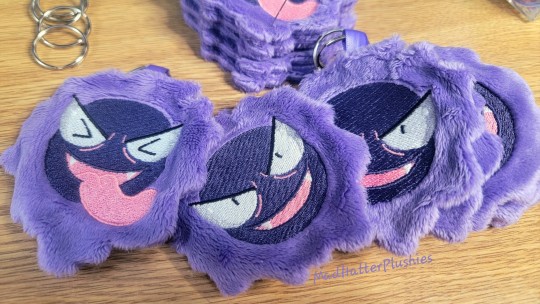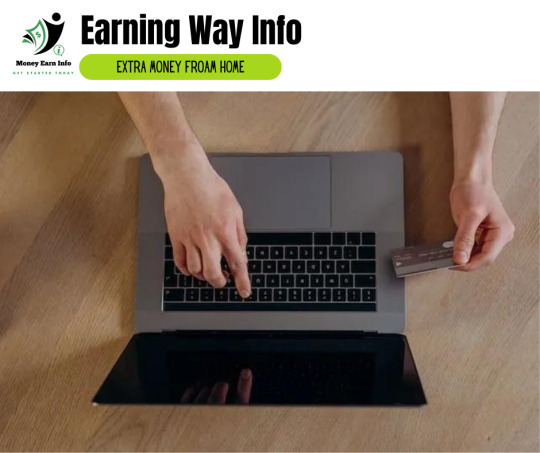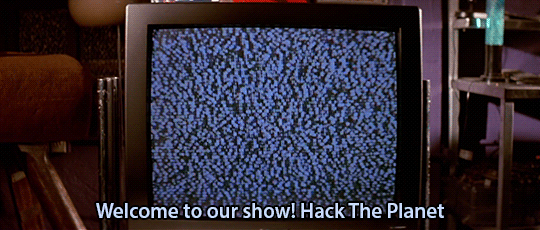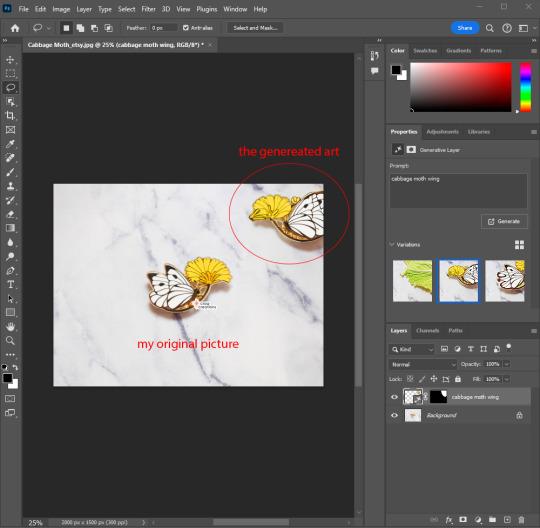#shopify advice
Text
Redesign your Shopify Store in India
Looking To Give Your Shopify Store A Fresh New Look? Are you not happy with the current design of your Shopify store? Do you feel like your competitors are better than you? Don’t worry, let our Shopify experts level up your store and set you apart from your competitors.
The e-Commerce Site is Outdated or Looks Amateurish
If you started an e-commerce store ten years ago, you may have just put it…

View On WordPress
#best Shopify Developers#ecommerce Delhi#ecommerce store#eCommerce website designer#eCommerce website designing#online store#shopify advice#Shopify Developer#shopify development#Shopify Development Agency#shopify development company#shopify experts#shopify India#shopify store#shopify store development#shopify store development services#shopify tips#store develop#store development#store launch
1 note
·
View note
Text
Where and how to find a Shopify Expert?

Finding a Shopify Expert: Your Guide to E-Commerce Success
As the e-commerce landscape continues to grow, finding a Shopify Expert has become increasingly essential for businesses looking to thrive in the digital marketplace. A Shopify Expert possesses specialized knowledge and skills that can enhance your online store's performance, design, and functionality. This guide will walk you through where and how to find a Shopify Expert to help you make the most of your e-commerce journey.
Where to Find a Shopify Expert:
Shopify Experts Marketplace:
The most direct and official way to find a Shopify Expert is through the Shopify Experts Marketplace. Shopify maintains a directory of experienced professionals with various specialties, such as design, development, marketing, and strategy. You can browse through profiles, view past work, and directly contact experts who match your needs. Shopify vets these experts to ensure their qualifications.
Freelance Marketplaces:
Popular freelance platforms like Upwork, Freelancer, and Fiverr also host a multitude of Shopify Experts. These platforms offer a broad range of expertise and price points. You can post your project, receive proposals, and choose the expert whose skills align with your requirements. Keep in mind that due diligence is crucial when selecting freelancers to ensure their credibility and capabilities.
Agencies and Web Development Firms:
Many web development agencies and firms specialize in Shopify services. They employ teams of experts who can manage your project from start to finish. While this option may be more expensive than hiring an individual expert, it often guarantees a comprehensive and professional approach.
Shopify Meetups and Events:
Shopify holds various events and meetups where experts, developers, and businesses come together. Attending these events can be an excellent way to connect with Shopify professionals. These experts are often up to date with the latest trends and best practices.
Referrals and Recommendations:
Inquire within your professional network, colleagues, or friends who run e-commerce businesses. They may have worked with or know of experienced Shopify Experts and can provide valuable recommendations.
How to Find the Right Shopify Expert:
Clearly Define Your Needs:
Before starting your search, identify what you need from a Shopify Expert. Are you looking for web design, technical development, marketing, or a combination of these services? Understanding your specific requirements will help you find an expert with the right skills.
Review Portfolios and Case Studies:
When evaluating Shopify Experts, review their portfolios and case studies. This will give your insight into their past work, style, and expertise. Pay attention to projects like yours.
Check Reviews and Ratings:
If you're considering using freelance platforms, check the reviews and ratings of Shopify Experts. This feedback can provide valuable insights into their work quality and professionalism.
Interview and Assess Expertise:
Before finalizing your decision, interview potential Shopify Experts to assess their expertise, communication skills, and compatibility with your project. Ask about their approach, timelines, and pricing.
Get References:
Don't hesitate to ask for references from previous clients. Speaking with those who have worked with the expert can provide a clearer picture of what to expect.
Set Clear Expectations:
Once you've chosen an expert, ensure that you set clear expectations and objectives for your project. Clearly outline deliverables, timelines, and any other specifics to prevent misunderstandings.
Finding the right Shopify Expert is a pivotal step in your e-commerce journey. Whether you need technical development, design, marketing, or a combination of these services, the right expert can make a significant difference in your online store's success. Don't hesitate to explore the Shopify Experts Marketplace, freelance platforms, or web development agencies to discover professionals who can help you achieve your e-commerce goals. By making an informed choice and collaborating effectively, you can harness the expertise of a Shopify Expert to drive your business forward.
For More insights visit- https://www.distancecoding.agency/
or Book a meeting-https://calendly.com/distancecoding/30min
#shopify#shopify experts#startups#entrepreneur#marketing#business advice#software developers#development#ecommerce#ecommerce platform#shopify developers#shopify development services
2 notes
·
View notes
Text
Hello tumblr let me introduce you to my freshly new store ! I am just starting fresh my store offering you a large pannel of custom self desing templates, from planner to sorrority resume, to simple resume.
Join us on to this amazing adventure, and jump with me in the univers of selling digital contents onligne !
#planner#notebook#bujo#bullet journal#planning#journalling#advertising#advice#tips#writing tips#how to#life hacks#etsy#etsyseller#etsyshop#etsy shop#shopify#online store#small business#store#handmade#digital art#digital illustration#digital marketing#wedding planner#planned parenthood#event planner#digital planner
0 notes
Note
i'm sure that you get asks like this a lot so i apologize if i'm beating a dead horse to the ground LOL but for someone who owns an online shop, do you have any tips for beginners just starting off / looking into starting one? not really asking for anything specific, but just rather anything you'd be willing to share based off your experience...!
OOF okay so there's quite a lot that goes into running an online shop, so best general advice i can give is to do your research! there's a lot to an art shop that you need to consider and understand before running into things. sometimes it's a bit hard to figure out where to start your research though, so here are the biggest things i think you should look into first:
manufacturing your stuff: some artists hand make merch at home, but if you don't have the means to do that then you'll need to find places that can manufacture your designs for you. like if you're making stickers, look into custom sticker printing sites like StickerApp or Sticky Brand. a lot of manufacturers will have sample packs you can order for free to get a better idea of what their items are like.
shop hosting websites: figuring out where to actually host your shop and sell your art is very important - my shop is through Big Cartel which i really like, but isn't for everyone. other shop hosting sites include Shopify and Etsy, and Shopify is sorta similar to BigCartel from what i know? Etsy is very different, selling through Etsy means your stuff will be easier for people to find through the Etsy search function (BigCartel and Shopify don't have this, any traffic you get will have to come from off-site and you'll have to advertise the shit outta it). HOWEVER Etsy has some pretty bad practices when it comes to how they treat the artists that sell on there. most people i know that use/used Etsy have been burned by them in some way, so be warned.
money stuff (accounting, budgeting, taxes): LEARN HOW TO MAKE SPREADSHEETS!! spreadsheets with just a few simple addition/subtraction formulas will be a huge help when it comes to budgeting and keeping track of your expenses - and you'll need to keep track of ALL your expenses! taxes can also be tricky, most shop hosting websites will collect sales tax for you but do some research on what freelance/small business taxes look like in your country.
shipping: the two main aspects to shipping are your shipping supplies and shipping labels. you'll want to find mailers that fit and protect whatever art you're selling, and tbh the best way i figured this out was from buying from other artists and seeing how they packaged their stuff! shipping labels are their own beast - some sites like Etsy will make them for you, but not BigCartel. i use a site called Pirate Ship to import BigCartel orders and buy shipping labels for them.
thats about all i got for now, running an online art shop is very hard not gonna lie!! but it's very fun and rewarding to make your own funny items :] best of luck to ya!!
67 notes
·
View notes
Text
I'm really working on not drawing because I feel I HAVE to. But it is hard to then not feel like I'm doing anything productive lol. I'm still here!! Comms are open and prints available etc, but also I welcome anyone who wants to just chat to me too via asks or whatnot like. Sometimes it's hard to not just feel like I'm an art machine. and I don't really know what to do about that since I do support myself through my art so I can't exactly afford to not think that way at times. But this then makes art no better than a job which steals all your self worth to make u the best worker. I don't want art to be that for me all the time, I want self worth to be seperate from productivity.
Anyway that being said, I am also thinking about opening my own shop that isn't etsy cuz they take way too much off me (and are awful). Idk what to try but I was thinking of shopify or big cartel. Any advice, esp in the UK, would be great!
#It's so hard when I'm not feeling productive to then not feel like a person#Cuz I get worried if I'm not constantly posting art then people will lose interest#Like. I just wanna be liked deep down. And make art. So combining both is like... Deadly for my brain#So I'm working to stop equating self worth with my art but it's hardddd#Anyway like I'm here and I'm a guy!! I don't bite#Tapeworm talks#Idk man.... Big thoughts today about loneliness etc
20 notes
·
View notes
Note
hi! apologies if you've been asked this before, but do you have any advice for first time online store owners? i'm thinking about opening one to sell sculptures of my own but i've got no idea where to start, and was wondering if you had any tips to share.
anyways, i love your charming little clay fellows and i hope you have an excellent new year 🤎
i may have been asked it but i can always answer again! tagging this with "clay ask" so you can review past answers
tips:
it's fine to start small and go slow and not optimize everything right away. sculptures are a luxury good and they will usually not immediately start flying off the shelves.
that said: it's nice to track what time you're spending on what. just block it out on google calendar after you're done so you can tot it up at a later time. this tip is super hypocritical but i've done it in the past
i use and like big cartel for my storefront. it doesn't have the fees of etsy or the will sell your stuff twice if people buy it really fast of storenvy. it also doesn't have the discoverability of either, so you'll have to try harder on other social media, but it's a worthwhile tradeoff for me. i don't know anything about shopify and i won't learn
i like pirate ship for shipping labels; it talks directly to big cartel (and a lot of other storefronts!), gets good rates, lets you preview hypothetical packages to check shipping costs, and lets you save package presets. i have a shipping label printer but you should be fine with a regular printer + packing tape.
try to make some reliable size classes of sculpture so you can use a few package settings and not recalculate shipping every time
i try not to buy shipping material from uline because they love trump soooooo soo much. if you have anything local, that's generally a smart call for last minute supply runs, especially because shipping on boxes is spendy. i like upaknship.com for jazzy bubble mailers. i haven't researched their politics but at least they aren't uline
do not put anything particularly delicate in a bubble mailer. i assume you can guess this but a friend once mailed me a plant pot in like. a plastic bag with some shredded paper. so i don't trust what people know about distribution of force in packaging.
you want pressure to be pretty evenly distributed. you don't want anything to be able to twist or bend or snap or rub against itself. you want your packed mailers and boxes to not make any noise when you shake them or to "clunk!" when you drop them on a table from a foot or two up. if you're worried about dropping them that far you have not packed them right.
people will often give you packaging materials if you say you're collecting them
it's nice to have a tape gun... i inherited mine from a childhood neighbor who was a wonderful lesbian
take very careful notes on expenses and income. expect about 25% of $ that comes in to go to taxes (i'm in CA, this might vary)
have a cute logo :) just for fun
these are my THOUGHTS. enjoy!!
#clay ask#long post#this doesnt even get into the nightmare that is product photography <3#oh also if you're doing pricing/profit math paypal and stripe eat about 4% iirc.
93 notes
·
View notes
Text

Trying to remember to post more haha
Working on a bunch of gastly charms today :D These ones are the pastel version and there's a handful of classic colour charms just out of frame.
For news generally- I've been working on a new website/shop!!
I really haven't been super happy with my emailing or webhosting services and I've been struggling with shopify's 'app store' labyrinth for a good while. On the advice of a friend I decided to check out squarespace and I'm loving the website building so far. They explicitly included my highest demand features built right in and I really hope the shop back-end holds up the same standards 😭🙏
#handmade plush charms#charms#pokemon#pokemon fanart#gastly#ghost pokemon#general update#shop news#wip#handmade art#canadian artist#queer artist#nd artist
18 notes
·
View notes
Text
Maximizing Your Income: 25 Effective Ways to Make More Money from Home - Money Earn Info

Get Over 2,500 Online Jobs. You may have already tried to make money online. Here is Some Information about Easy Job you can do from home.
👉 Offers for you
.
.
Freelancing Across Multiple Platforms: Expand your freelancing endeavors by joining multiple platforms such as Upwork, Freelancer, and Fiverr. Diversifying your presence can increase your visibility and attract a broader range of clients.
Remote Consulting Services: If you possess expertise in a particular field, consider offering consulting services. Platforms like Clarity — On Demand Business Advice connects consultants with individuals seeking advice, providing an avenue for additional income.
youtube
Create and Sell Online Courses: Capitalize on your skills and knowledge by creating online courses. Platforms like Udemy, Teachable, and Skillshare allow you to share your expertise and earn money passively.
Affiliate Marketing Mastery: Deepen your involvement in affiliate marketing by strategically promoting products and services related to your niche. Building a well-curated audience can significantly increase your affiliate earnings.
Start a Profitable Blog: Launch a blog centered around your passions or expertise. Monetize it through methods like sponsored content, affiliate marketing, and ad revenue to create a steady stream of passive income.
E-commerce Entrepreneurship: Set up an online store using platforms like Shopify or Etsy. Sell physical or digital products, tapping into the global market from the comfort of your home.
Remote Social Media Management: Leverage your social media skills to manage the online presence of businesses or individuals. Platforms like Buffer and Hootsuite can streamline your social media management tasks.
Virtual Assistance Services: Offer virtual assistance services to busy professionals or entrepreneurs. Tasks may include email management, scheduling, and data entry.
Invest in Dividend-Paying Stocks: Start building a portfolio of dividend-paying stocks. Over time, as these stocks generate regular dividends, you can create a source of passive income.
Remote Graphic Design: Expand your graphic design services on platforms like 99designs or Dribbble. Building a strong portfolio can attract high-paying clients.
Web Development Projects: If you have web development skills, take on remote projects. Websites like Toptal and Upwork connect skilled developers with clients in need of their services.
Launch a YouTube Channel: Create engaging and valuable content on a YouTube channel. Monetize through ad revenue, sponsorships, and affiliate marketing as your channel grows.
Digital Product Sales: Develop and sell digital products such as ebooks, printables, or templates. Platforms like Gumroad and Selz make it easy to sell digital goods online.
Stock Photography Licensing: If you have photography skills, license your photos to stock photography websites. Each download earns you royalties.
Remote Transcription Jobs: Explore opportunities in remote transcription on platforms like Rev or TranscribeMe. Fast and accurate typists can find quick and consistent work.
Participate in Paid Surveys: Sign up for reputable paid survey websites like Swagbucks and Survey Junkie to earn extra income by providing your opinions on various products and services.
Remote Customer Service Representative: Many companies hire remote customer service representatives. Search job boards and company websites for remote customer service opportunities.
Cashback and Rewards Apps: Use cashback apps like Rakuten and Honey when shopping online to earn cashback and rewards on your purchases.
Create a Niche Podcast: Start a podcast around a niche you are passionate about. Monetize through sponsorships, affiliate marketing, and listener donations.
Automated Webinars for Digital Products: Create automated webinars to promote and sell digital products or services. This hands-off approach can generate income while you focus on other tasks.
youtube
Rent Out Your Property on Airbnb: If you have extra space in your home, consider renting it out on Airbnb for short-term stays. This can be a lucrative source of additional income.
Remote SEO Services: If you have expertise in search engine optimization (SEO), offer your services to businesses looking to improve their online visibility.
Invest in Real Estate Crowdfunding: Diversify your investment portfolio by participating in real estate crowdfunding platforms like Fundrise or RealtyMogul.
Create a Subscription Box Service: Develop a subscription box service around a niche you are passionate about. Subscribers pay a recurring fee for curated items.
Remote Project Management: Utilize your project management skills by taking on remote project management roles. Platforms like Remote OK and Home feature remote opportunities.
Making more money from home is not just a possibility; it’s a reality with the myriad opportunities available in today’s digital age. By diversifying your income streams and leveraging your skills, you can create a robust financial foundation. Whether you choose to freelance, start an online business, or invest in passive income streams, the key is consistency and dedication. Explore the strategies outlined in this guide, identify those that align with your strengths and interests, and embark on a journey to maximize your income from the comfort of your home.
#makemoneyonline #makemoney #money #workfromhome #entrepreneur #business #affiliatemarketing #bitcoin #success #onlinebusiness #forex #digitalmarketing #motivation #investment #makemoneyfast #earnmoney #financialfreedom #passiveincome #cash #businessowner #entrepreneurship #marketing #luxury #earnmoneyonline #millionaire #makemoneyonlinefast #makemoneyfromhome #investing #cryptocurrency #onlinemarketing
#makemoneyonline#makemoney#money#workfromhome#entrepreneur#business#affiliatemarketing#bitcoin#success#onlinebusiness#forex#digitalmarketing#motivation#investment#makemoneyfast#earnmoney#financialfreedom#passiveincome#cash#businessowner#entrepreneurship#marketing#luxury#earnmoneyonline#millionaire#makemoneyonlinefast#makemoneyfromhome#investing#cryptocurrency#onlinemarketing
27 notes
·
View notes
Note
Sorry if you've been asked this before, but how do you get started working in, as you said, weird quasi-startups?
This is a history retelling, not advice, because the world I came up in doesn't exist anymore. I'm in my 40s and started in the '90s.
If you skim over all of this WATCH THE VIDEO AT THE END HERE IS A LINK TO SAID VIDEO IT IS A CONDENSED VERSION OF IT from a local design firm.
The video is not a rick roll. This one is though.
Now I hope you can trust me. This is a long post. I'll use HACKERS to break it up.
I have no connection to Coudal.
Or Rick Astley.
I get into the nitty-gritty Small Scale Stuff
Jim Coudal gets into the nitty-gritty of the Medium-to-Large Scale Stuff... in 2011. The basics remain the same.
I am realizing in linking this that I don't think Coudal Partners exists anymore? I think they shifted their entire focus to Field Notes notebooks?
Anyway, still relevant.

(No -- 1994... and... maybe a bit earlier I can't remember that far back)
As I say -- this is history, not advice -- I'll try to pepper in some advice.
In some ways that's bad (Flash animation used to pay really well when weighed against what it took to learn how to do it).
In some ways that's good (things like Stripe and BigCartel and Shopify and MailChimp and Tumblr exist).
I was an anxious, studious kid really into mythology with very little access to it. I had access to the internet for about 6-8 hours a week, so scrambled to cram as much into my brain as I could. A reminder this is the early to mid 1990s.
I realized at some point that websites could be built without special tech. I explicitly remember seeing a web hosting company have a late night television ad on Conan O'Brian, offering a few megabytes of space free.
I learned HTML.
Then CSS launched, and I learned CSS.
(...yeah, this... this was the '90s)
From there I learned Macromedia Flash (later Adobe Flash) because it could do things I couldn't do with programming -- because of my own limitations, the web's limitations, free server limitations... etc.
I learned Flash the same way I learned HTML and CSS -- taking things apart to see how they worked, making my own stuff, breaking things down (and just breaking things)
At some point I was able to secure my own computer + internet and just hammered things constantly until I had a grasp of the basics.

So with that technical background...
"I am a web designer, do you need a website?" I would just offer up. Friends on forums, people in shops, a few cold calls that didn't work out great because I'm not a talkative person.
Just.
Constantly.
Networking.
Which is an accurate but kinda useless term, right?
"How does one network, does one just shove business cards into the face of everyone they meet and say 'I am a business person'"?

...yes.

Diners, comic shops, tattoo parlors, independent restaurants.
To illustrate the differences of when I started versus today -- any time I went somewhere that didn't have a website, I would ask the person behind the counter --
"Hey are you thinking about launching a website?"
When it wasn't the owner/manager at the counter and they would say something like "I just work here," I'd ask for the manager's contact info to follow up.
The success rate of "I ask" versus "I get money out of this" was maybe 1%. Just constantly asking, constantly trying to build the business books.
Never taking things personally when ghosted or just ignored or it fell through.

Cool but it's 2023/2024... so... the second half of my story may help.
I eventually gathered up enough clients and student loans to go to school for design. I have mixed opinions on this.
I had a few teachers who needed Extremely Cheap Intern-Level Labor and I was able to parlay my web experience into these opportunities.
I learned print design, branding, color theory, the basics of art in school.
I learned better business models by doing business and fucking up and getting burned and taking notes on how to fuck up less and get burned less the next go-round.
I applied for an ad agency job and hacked their website to rebuild it to show I could build websites and they were like "okay well we have to hire you now because we're in love with you / we fucking hate you"
(both emotions at the same time) (I worked there 11 months then went to grad school / see above art school link, it also applies)
Great thanks but maybe get back to advice?
I made things. I still make things.
Pins, buttons, shirts, bridge models, a chair, a lamp, I hired blacksmiths to learn about blacksmithing, I traded logos for beer, a theater company needed artwork so I engaged in a multi-prong trade of theater tickets and candy and / and / and / and with various other friends / clients / non-sense makers.

I made things and if people didn't have money to pay for them, I took some of their product.
Sometimes I paid other people with that product for things I needed, sometimes I paid with my labor for things I needed... etc.
Kept doing that until I could leverage skills acquired against people with money. Meeting them the same way.
"Hey who does your website?"
"Hey who does your menu design?"
"I like your logos, do you have someone working on your brochures? Oh you hate your logo? Okay to be honest... I was using that as an opening line. I hate it too. Want to chat about redoing it?"
I fucked up a lot. I got burned a lot. There was more success than failure so I was able to keep going.
Modern Day Translations
A lot of that will work -- build a portfolio, keep it updated, if someone mentions they are launching a whatever, chat with them -- but also look at freelance agencies.
If you work for trade, then scale the work offered for the product received. Don't be afraid to say "nope, out of scope."
People who will take +50% of the commission but help you find the commissions and handle the tax paperwork.

Ultimately, the basics are the same.
Make stuff. Put it into a portfolio.
Get comfortable introducing yourself.
Learn not to take rejection personally.
Keep going. The number of clients I would get on the first project discussion was probably 5-10%. It would take an average of 18-24 months, average, before I'd get money out of people. MEGA EMPHASIS -- A LOT OF -- MEGA EMPHASIS "hey remember me? I didn't have budget before, but now I do!"
By "make stuff" I mean.
Stuff.
(Things I have actually made)
Websites, blogs, writing, temporary tattoos, posters, ads, animations, plush toys, paintings, poems, books, rubber stamps, ads, grocery store packaging.
A whirlwind of stuff.
"That sounds expensive and difficult"
Yes. That's the bad news. There is no magic solution to it aside from "be careful with your time and cash and contracts and good luck."

I am not a soft person who is going to promise you everything is going to be okay and if you just work hard enough then things will work out and if you're talented enough then money and clients and business will come to you.
The brutal reality is it is going to be extremely difficult for as long as you do it and my #1 piece of advice is "constantly evaluate if you would find more happiness in a traditionally structured job doing weird stuff on the side."
It is absolutely possible to make a weird job.
It gets easier if you have financial support from family and/or a partner who will help you survive the lean times. I mention this in the spirit of honesty -- a lot of folks with weird jobs had/have one, or both.
In my opinion, this isn't talked about enough, and it leads to this mystic "This person must be doing well and I can't get off the ground, ergo something is wrong with me / my work / my process / my..." -- not necessarily.

Right, wrong, or indifferent -- some people have extra-to-their-personal resources help that allows them to make stuff. More, bigger, and/or faster.
I had the advantage of starting 30 years ago when the talent pool was smaller and harder to find and the work was harder to understand by people who were hiring.
Take what you have and try to make more of it being careful to spend as little as you can with it as it grows.
That's the essence of business.
Everything else is salad dressing.

SO MANY WORDS
I'll wrap up:
Start small and affordable
Figure out how to keep going when you want to stop but can keep going
Figure out how to stop when you want to keep going, but can't
Figure out how to start again when you have to stop
This isn't a moral or ethical dilemma -- it's business.
Cold, hard, ruthless business.
"Does it make sense to continue putting resources into this? Yes? Keep going.
"No? Pause.
"It never will make sense? Do this as a hobby, possibly an extensive and advanced hobby, possibly as 'this is my job in the sense I spend my resources here and the tasks I do for a company for money are life maintenance, on par with brushing my teeth."
Never work for free. Barter to a level mutual benefit.
If you want to work with other people, build a portfolio and keep it stocked with the stuff you want to do. Make up your own projects from literal scratch.
Most of the time, real work is better than personal work
BUT personal work is always better than no work.
This is cross-sectional -- if you want to make logos, it's better to show real work logos.
If you don't have any, make personal work logos and fold these into real work brochures, which you WILL DO but DONT WANT TO DO, as you build your logo business.
As your logo business builds up, replace real work logos + keep personal work logos and reduce brochures until you have enough (of either form) of logos to just have a logo portfolio.
Here is that video from Jim Coudal again talking about his (former?) design firm, Coudal Partners, and how it evolved to partner to create Field Notes
youtube
A final disclaimer:
I do not know Jim Coudal, I've never worked with him or FIeld Notes, they don't know I exist in any capacity. His projects are significantly larger than anything I have the appetite to tackle (I like small, weird things nearly exclusively)
This video + countless similar talks helped me build me up to where i am with advice, ideas, and the strength to get through the invariable weird / hard times.
27 notes
·
View notes
Text
Good news! My merch order from Vograce has arrived and all the new charms and stickers I designed look amazing! They will all be for sale at Anime ID 2024 on July 6th and 7th! Here are some blurry photos to pique your interests!




Bad news! Etsy has been ignoring my emails for almost five months. I've emailed them probably seven or eight times with no results - it seems they're simply unhappy with my storefront for unknown and unexplained reasons. I'm looking at other options right now, like bigcartel and shopify, but I don't know if I'd be seeing as much success on those places as I would be on Etsy.
I feel kind of stuck right now - I have a ton of cute designs, with nowhere to sell them. If anyone has advice please don't hesitate to reach out! I'm very new to this.
12 notes
·
View notes
Text

i will never not be absolutely baffled at how i managed to bullshit my way into a whole ass real career to the extent that im mostly confident in giving tax advice* despite learning basically the whole gig via brute force and determination
19yo streetpunk me would lose his absolute shit
(*disclaimer of this is not financial advice this is conjecture based off what i know from doing taxes for the business i work at that provides services all over the state but is contained to just our state. i have not seen any of the documentation for my friends shopify or shopifys run down on tax collection because im sure it exists somewhere. pls do not quote me on this)
2 notes
·
View notes
Note
Hi! I'm not sure if it's just an issue on my end but your Shopify shop seems to be down rn? I can't access it from any device!
Hmmm I'm able to access it myself, so whatever issue you might be having, it looks like I'm not having it. If anyone else wants to try and let us know on this post if it's working that would be helpful. My shop is here.
Otherwise my advice is to try again later or try on a different browser. Or go to Etsy instead. Sorry for the trouble!
6 notes
·
View notes
Text

Where is Photoshop getting its AI training from?
Well, probably from scraping. And your stuff might be already in their database without your permission. Above is a screenshot of my Photoshop app with my original picture of my butterfly/moth pin with my watermark already baked in. I was trying out their generative AI tool that is integrated with their new version to see what kind of potential problems could arise and I found one immediately.
As you can see in the image, when I clicked generative fill and typed in "cabbage moth wing" it generated a slightly garbled flipped image of my pin. Where did it get this? Adobe states it's not using your images to train their AI. So let's believe that's true and that when I edited the original photo in Photoshop, it didn't use it from there. I also don't think used the pre-existing pixels to generate it. The generative AI is using a different source than the Content-Aware tool they have.
So it must be from where I've posted it online. After all those are keywords I use for my project. That would be Etsy, my Shopify, and my Instagram page. While nothing in their terms explicitly calls out selling your imagery to AI companies (as far as I've found in their legal pages) they could be. Or, my theory is, Adobe purchased data from people who were scraping the internet.
Currently Adobe prohibits you from using anything created fro their generative AI for commercial purposes (personal use only). It will take your AI text prompts. My worry is that they don't say they won't use it in the future and their already using a database that more than likely has illegally scraped data.
I have no advice except perhaps don't use their tool. It's pretty cool honestly, but we must simply make a moral choice here.
#AI discourse#generative art#somehow Instagram had the best terms where if you delete your content#they forfeit right to using it for any purpose#I am not a lawyer#I am simply an artist trying to understand terms of service#you know the thing most people don't scroll through and just accept
10 notes
·
View notes
Note
Hello!
I had a question related to your shop, I'm looking into my options on creating an online store (because I refuse to do Etsy if I can avoid it just because of their sheer fuckery when it comes to how they treat creators) and was wondering if you wouldn't mind giving some tips or relaying your experience creating a shop, I was looking into Shopify but their fees scare me frankly and my family is having significant issues with them so they're kinda on the shit list lol
Anyway, ty for your time!
sure! i feel the same way about avoiding etsy, i've sworn off ever using it for a number of different reasons lol. unfortunately the biggest benefits that etsy has (easy international shipping and a search function that makes your shop/items really easy for people to find) aren't things you can get from most other shop hosting services.
i run my shop through bigcartel, which is similar to shopify - it's also a monthly subscription if you want to sell more than five items, but i think it's cheaper than shopify ($15/month for their platinum plan). i think bigcartel is okay, but their prices have been increasing recently (and they're also doing wild shit like putting their new shipping label feature behind their most expensive plan??? literally just found this out while researching for this ask. damn)
you could also look into ko-fi's shop feature or storenvy, i think you can use either for free. i don't have much experience with either, but i know people who use both and have had good experiences with those services.
running an online shop is hard! my main advice is usually to start small so you can get the hang of things first. the hardest thing for me to figure out was shipping - currently i use a site called pirate ship to make my labels and i get most of my mailers through ecoenclose. best of luck to you!
29 notes
·
View notes
Note
thank you for the advice on pins ! i am in the process of researching how to set up my shop and i have a couple more questions if you don't mind-
at what stage did you feel it was time to open your shop, follower-wise? did it take a long time to become profitable ?
i saw you go through a manufacturer for your prints, is it because making them is too expensive?
i see you don't make stickers, is there a reason?
is a laser cutting machine worth it when debuting ? or superfluous?
what did you use to design your website (it's very pretty btw)? do you have advice on getting people interested in checking it out?
how does one deal with sales being down, mentally, and how to be patient in the beginning?
does managing orders require a lot of organization? is a label maker worth the time it saves? in general, do you recomment buying your own machines (printer, or button maker) or stick with manufacturers? also, do you have advice on reconcialiting it with anticapitalism because im feeling conflicted about outsourcing labor and adding products to this world...
is setting up shopify very hard ? are taxes a hassle ?
sorry if it's a lot, i have trouble wrapping my head around every step i'll have to do and want to avoid beginner mistakes if i can. if you have any other advice and traps to avoid i'd be very grateful
dude this is SO many questions.
the short answer is: everything is hard and takes work.
there is no “right” time to start a shop or start selling stuff. you just kind of do it and hope. i opened mine in college (around 2012 or 2013) because i had already made some merch for a local convention and i wanted to sell the leftovers. my store didn’t become viable as a full time job until around 2017—it was a means to subsidize the income i had from working as a freelance artist.
also i never went into debt for the store so there was never a moment when my store “became profitable.” unless you’re willing to go into debt for this (not something i’d recommend), it’s a slow slog to get to a point where you can afford to sell items with a higher price point at a high enough volume that it is viable as a full career. inventory costs money and the more profitable items cost more money. it takes a lot of time and work and momentum to make this your whole job.
buying your own equipment is only worth it if you plan to use that equipment for multiple years to get a good return on investment.
however a label printer is almost always worth it, but i wouldn’t buy one until you’re getting at least 20 orders a month.
low price point items like buttons and stickers can be good to start out (i used to sell both) but at a certain point, unless you’re selling a massive amount of them there is a limit to how profitable a $3 item can be.
managing a store takes an amount of work/organization that is proportional to the number of products you have/sell. i will say i was an absolute disaster at this when i handled everything myself, which is why the store only became viable as a full time job once devin joined me.
i use squarespace for my portfolio site and shopify for the store. they’re relatively hassle free.
if you’re making most of your income from store or freelance work, find a local CPA to help you do taxes. also keep a running spreadsheet for all your expenses and income. separate your expenses into groups based on the different types of deductions (i.e. office equipment, travel, etc.) and update that spreadsheet, at minimum, once a month. then taxes are easy.
as far as anticapitalist mindset goes… do your due diligence when it comes to sussing out the manufacturers/companies you work with and try to create thoughtfully.
anyway next time you ask for advice please just pick like 3 questions at a time. this was… a lot.
35 notes
·
View notes
Text

Certainly! Here are some ideas to potentially earn $100 daily:
Freelancing: Offer your skills online on platforms like Upwork, Freelancer, or Fiverr. Whether it's writing, graphic design, programming, or virtual assistance, there are opportunities in various fields.
Online Tutoring: If you're proficient in a particular subject or language, you can offer tutoring services through websites like Tutor.com or Wyzant.
E-commerce: Start an online store selling products through platforms like Shopify, Etsy, or Amazon. You could sell handmade items, print-on-demand products, or source goods from wholesalers.
Content Creation: Start a blog, YouTube channel, or podcast focusing on a niche topic you're passionate about. Once you build an audience, you can monetize through ads, sponsorships, or affiliate marketing.
Social Media Management: Many businesses need help managing their social media accounts. If you're adept at creating engaging content and growing followers, offer your services to businesses in need.
Virtual Assistance: Assist busy professionals or entrepreneurs with tasks like email management, scheduling, research, or customer service remotely.
Stock Photography: If you have a knack for photography, you can sell your photos on stock photography websites like Shutterstock, Adobe Stock, or Getty Images.
Consulting: Leverage your expertise in a particular field to offer consulting services to businesses or individuals seeking advice.
Online Courses: Create and sell online courses on platforms like Udemy or Teachable. If you have expertise in a particular skill or subject, others may be willing to pay to learn from you.
App Development: If you have programming skills, consider developing and selling mobile apps or software solutions.
Remember, success often comes from combining your skills and interests with market demand. It may take some experimentation to find the right fit, but with determination and effort, earning $100 daily is achievable.see more
2 notes
·
View notes